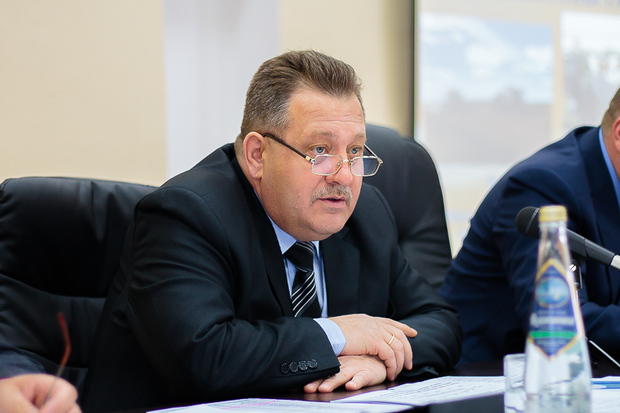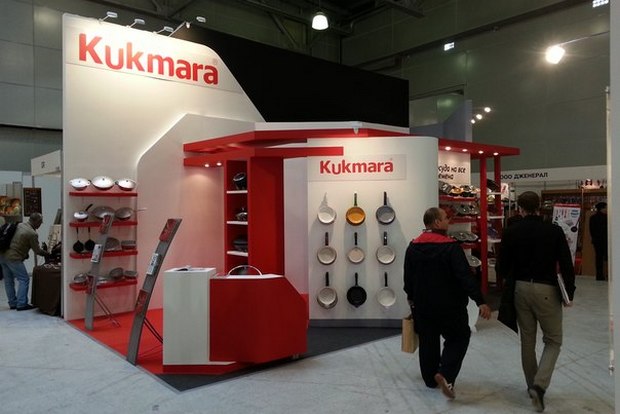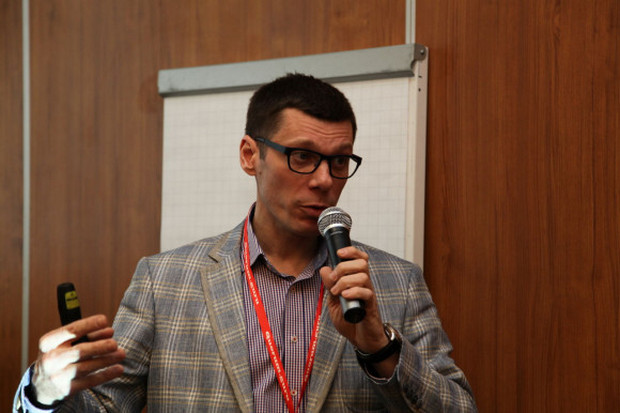Tatarstan going to conquer Chinese market with loaves, pans and ketchup
Tatarstan food producers, following large Russian holding companies, are trying to enter the bottomless market of China. In the international centre of import food products World Food City, which was nicknamed as ''the Food town'' of China, the Tatarstan ministry of agriculture will open a pavilion of ''food opportunities''. However, as it became known to Realnoe Vremya, only two ''food'' companies — Nefis-Bioproduct and Bulochno-Konditersky Kombinat JSC (Bakery and Confectionery Complex JSC) – agreed for test sale. They are already close to signing contracts with Chinese distributors for 2018. The rest of the producers reacted to the idea entering China through World Food City less enthusiastically.
Beginners with test sales: vegetable oil and sushki
The opening of trade pavilion with Tatarstan products in World Food City is, one can say, the first application for entry into the food market of China. Due to the infinitely growing population of the country, their food market simply has no bottom. For this reason, many domestic food producers have identified it as a strategic direction of exports. Besides, Russian products in China are particularly appreciated for their environmental friendliness, naturalness and health benefits.
Despite the favour of Chinese consumers, a few decided ''to take a dip'' in the ocean of the world's largest market. As first Deputy Minister of Agriculture and Food of Tatarstan Nikolay Titov informed Realnoe Vremya before flying to Shenzhen, two Tatarstan companies are going to exhibit at the international center of food products World Food City. It is Nefis-Bioproduct JSC with an assortment of vegetable oils, ketchup, sauces and mayonnaise, and Bulochno-Konditerskiy Kombinat JSC with confectionery products. ''The largest producer of vodka Tatspirtprom JSC was also offered to exhibit in the exhibition of Tatarstan, but they refused,'' said Nikolay Titov. ''They have already established products supply to Northern China, they have strong contracts with distributors. So, they simply have no need.'' According to him, exhibition in World Food City is important for beginners who need to establish direct contacts with distributors of Chinese trade networks. In the future, World Food City plan to open trade of non-food items, so Kukmorsky plant of metal ware (has an assortment of pans and pots under the brand Kukmara) is also going exhibit there.

Tatarstan has brought sunflower oil and sauces produced by Nefis-Bioproduct JSC for test sales. As it turned out, this producer is closest most of all to signing contracts with Chinese distributors (names are not disclosed). According to a representative of Nefis-Bioproduct, at the exhibition they are planning to conclude a contract for a trial batch of 2,000 tonnes of oil and 1,000 tonnes of ketchup and sauces. ''It's start-up sales to enter the market,'' he explained a small amount of supplies. ''Before us, two years ago it was the Voronezh holding EFKO that entered the Chinese market first, but they work in the middle price segment. Compared to our competitor, our price in China market will be lower.'' China is to become a major export market of the company, despite the difficulties of entering. They do exist: the minimum investment for an independent entering the Chinese market range from $2 million, charges for customs clearance of a small test batch of products, customs duties, VAT — all this increases its price by 50%,'' says the representative of Nefis-Bioproduct.
Why others were intimidated
Why are there only few willing to enter the Chinese market, after all? Is it possible at all that only three Tatarstan producers are ready to enter China? ''No, I think there will be more,'' says Nikolay Titov. ''We are like pioneers, we are trying, and the rest want to see what happens,'' he says. Still, we must not forget that entry into foreign market is always a major expense. China geographically is located far from Tatarstan, which leads to costs for logistics and customs clearance of products. But there are advantages — growth of welfare of citizens, who are buying more and more high-quality foreign products,'' he says.
The interest of Chinese consumers in Russian food products is growing and will grow, so it's never too late to enter this market, says the head of the project for China The United Confectioners Marina Oreshina, previously representing the dairy holding company Vim-Bil-Dann and the Russian alcohol producer Nemiroff in China. ''But vegetable oil is more difficult to sell as the market is full. You can only succeed by turnover,'' she said. ''But the pans are not interesting for China. They cook using open fire on special huge pans with big bowl. Besides, China has long become a site for pots production for export by European licenses. Yes, they will look at them, but will not buy,'' she said. ''It is necessary to enter China only with food, especially with baby food,'' says Oreshina.

How to overcome barriers in trade with China
''In order to avoid difficulties during customs clearance of goods and certification, you need to find at least two or three serious importers distributors. They know the requirements for registration of goods at customs, for their certification. If they are interested in selling your products, they will help you to overcome administrative entry barriers. What is more, they will do it for free,'' she says.
''The barriers that exist in China when entering the market are significant enough, and more than one year and repeated business trips are required to overcome them,'' the representative of EFKO Alexandra Yapryntseva did not agree. ''The requirements of Chinese partners to the quality are comparable to the requirements of the European companies with which we already work. In particular, they concern the certification of production in accordance with international standards. In addition, for some products, Chinese importers take additional certification on their territory.''
Certainly, the Chinese market is promising, agrees deputy chairman of the association Rusprodsoyuz Dmitry Leonov. But the minimum investment amount depends on many factors, including product category, estimated volume, availability of all necessary certificates, the work through distributor or private warehouse, and so forth. Therefore, it is impossible to name a specific number in this case. It is believed that Russian manufacturers incur high costs on the label approval and quality certificate obtaining when importing products for the first time. ''Not exactly,'' says Dmitry Leonov. ''Some large exporters who are certified for the European market do not incur extra costs for certification. Active licenses they have are enough. Moreover, recently Rosakkreditatsiya joined the Asian Association of accreditation bodies, and this must lead to the recognition of Russian certificates and test reports in China. Russian export centre provides Russian exporters large support and certification, and this support necessarily must be used when selling products to the Chinese market for the first time. Also, obtaining Quality Mark, the operator of which is Roskoshestvo, help the Russian producers to promote their products: Chinese consumers respond positively to the presence of this mark on the marking of Russian products. It is also important to know that there are still restrictions on import to China for certain products of animal origin, but the ministry of agriculture is actively working on the removal of such restrictions.

At the same time, label reissue to the Chinese language is mandatory and not an easy condition as the legislation concerning what can be applied to the packaging in China is very strict: all applied on the marking information must be documentary proved, no fancy phrases and inviting slogans can be on the packaging. In addition, you need to lay the item of the expenses on promotion of products. European exporters invest large resources in advertising and marketing. You need to remember that, in order to be able to make them a worthy competition.
Rusprodsoyuz: you must be independent
The most important thing what beginners shouldn't do is they should not sign an exclusive contract with a Chinese distributor. ''If you sign an exclusive contract with a specific distributor, the other distributors will need to take from it a special permit to import specified in the contract products,'' says Dmitry Leonov. ''Besides, networks and distributors are different in each region. So we do not recommend to sign an exclusive with one company. This scheme of work is adhered by many members of Rusprodsoyuz, successfully established a sales system in China, for example, the company EFKO, The United Confectioners.''
What is more, the members of the Union such as Russian Export chose the option of opening their stores and conclusion of direct contracts with the Chinese retail online and offline networks.